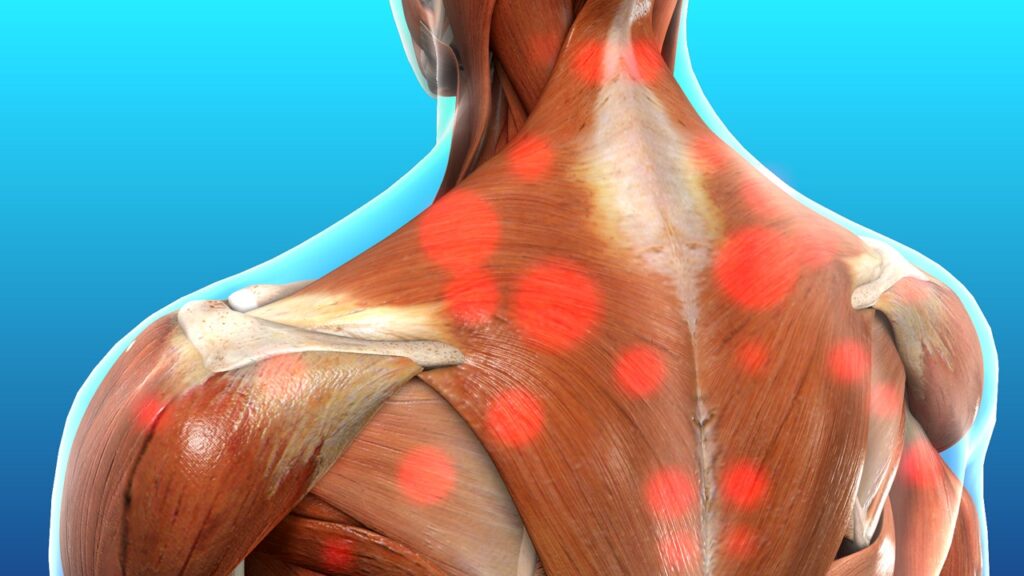What You Need to Know About Chronic Pain Syndrome?

Pain is our body’s natural response to an accident or sickness, and it serves as a signal that there is something wrong. In most cases, the pain will disappear after your body has healed completely. However, for many patients, the pain persists even after the underlying reason has been removed. Chronic pain is defined as pain that lasts for three months to six months or longer. When you are in pain on a consistent basis, it can have a negative impact on both your mental and physical health.
An estimated twenty-five percent of those who suffer from chronic pain may eventually develop a disease known as chronic pain syndrome. When this happens, people have symptoms that go beyond simple pain, such as sadness and anxiety, which make it difficult for them to go about their regular lives.
Treating patients with chronic pain syndrome might be challenging, but it is not impossible. Your suffering can be alleviated, along with the other symptoms associated with it, by utilising a combination of therapies such as counselling, physical therapy, and relaxation techniques.
What are the factors that lead to chronic pain syndrome?

The specific reasons behind chronic pain syndrome are a mystery to medical professionals. It frequently begins with a wound or a painful condition, such as one of the following:
- Sprains and strains of the muscles
- Ulcers or acid reflux disease
- The illness known as Lyme
- Nerve damage
- Rheumatoid arthritis and other joint conditions
- Surgical Operation
- Backache
- Broken bones
- Fractures
- Irritable bowel syndrome
- Fibromyalgia, a disorder that manifests itself as widespread muscular pain
- Headaches.
- Crohn’s disease and ulcerative colitis
- Injuries caused by repetitive stress, which occur when performing the same motion over and over again places strain on a particular body component
- Cancer
- Endometriosis, a condition in which tissue that normally resides in the uterus develops outside of it.
Both the mind and the body are involved in the development of chronic pain syndrome. Some medical professionals are of the opinion that persons who suffer from this ailment have an issue with the network of nerves and glands in their bodies that are responsible for managing stress. Because of this, they experience pain in a unique way.
According to the opinions of certain other professionals, chronic pain syndrome is a taught reaction. When you are in pain, it is possible that you will begin to engage in some negative behaviours even after the discomfort has subsided or been eliminated entirely. People of any age and of either gender can suffer from chronic pain syndrome, however women are more likely to be affected by it than males. People who suffer from serious depression and other problems related to mental health are at an increased risk of developing chronic pain syndrome.
Symptoms of Chronic Pain
Over time, chronic pain syndrome can have an effect not only on your physical health but also on your emotions and even your social life. Other symptoms, such as drug or alcohol misuse, anxiety, poor sleep, depression, irritability, problems in marital or family life, lack of interest in sex, feeling very exhausted or wiped out, job loss, guilt, or suicidal thoughts, might develop as a direct result of the pain.
Some patients who have chronic pain syndrome require an increasing amount of medication to control their pain, which can lead to the development of a dependency on these medications.

Getting a Diagnosis
Your physician may enquire about any diseases or injuries you may have had in the past that could have triggered the discomfort. They will also ask you other questions to learn more about the sort of pain you are experiencing and how long you have had it, including the following:
- Where exactly on your body parts do you feel the pain?
- What appears to be the cause of the pain or what seems to make it worse?
- When did you first notice the pain?
- On a scale of 1 to 10, how intense is the pain that you are experiencing right now?
- How does the discomfort manifest itself? How would you describe the pain? Is it throbbing, hammering, shooting, acute, pinching, stinging, scorching, or something else entirely?
- Have any therapies helped to alleviate the pain?
Imaging examinations can determine whether you have damage to your joints or other conditions that cause pain, such as:
- The use of computerised tomography. The X-ray is quite strong, and it creates very detailed images of the inside of your body.
- X-ray. To create images of the structures inside of your body, it exposes you to a low dose of radiation.
- Imaging by use of magnetic resonance. It creates images of the organs and structures inside of you by making use of magnets and radio frequencies.
Treatments for Chronic Pain
You can treat your chronic pain by going to a pain clinic or centre, your primary care doctor, or a specialist for the medical condition that’s causing your pain — for example, a rheumatologist to treat arthritis. You can also treat your chronic pain by visiting a specialist for the medical condition that’s causing your pain.
Your treatment plan will be individualised by your physician based on the nature of your pain. It’s possible that you’ll receive one or more of these treatments: Relaxation techniques, such as deep breathing or meditation; Counselling, either individually or in groups; Biofeedback; Blocking of nerves; Surgery to cure the problem that caused the pain; Medication to alleviate the pain, including anticonvulsants, antidepressants, and muscle relaxants; Occupational therapy; Braces; or Spinal cord stimulation
When Should You Seek Medical Attention for Your Chronic Pain
If you’ve recently dealt with an injury, sickness, or surgery, you can experience some degree of discomfort as usual. You can book a consultation session with specialist physician at Chronic Therapy for professional advice on what to take for the pain, especially if the pain is severe, if it does not go away, or if it prevents you from engaging in your daily routine activities.